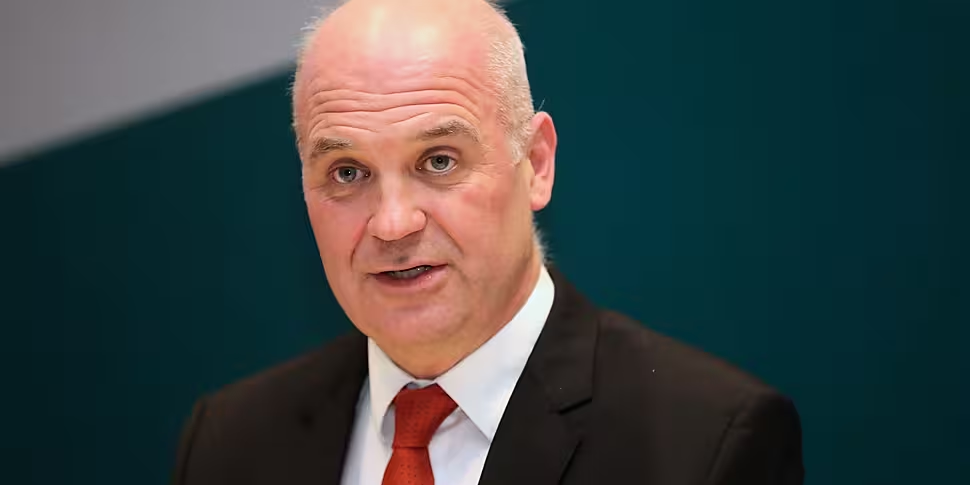The Chief Medical Officer says more restrictions may be placed on the PCR testing system to keep it running.
Dr Tony Holohan was speaking as changes were announced to isolation and testing rules for people with COVID-19 symptoms.
People over the age of three and under 40 with symptoms will not be sent for a PCR test unless they have a positive antigen swab.
While those aged 13 and older, who are at least seven days post booster vaccination or those who have completed their primary vaccination course and have had COVID-19 infection within the previous three months, should self-isolate for a minimum of seven days from the commencement of symptoms.
It comes as 20,110 cases of COVID-19 were confirmed in Ireland on Friday.
And Omicron now accounts for over 90% of PCR confirmed cases here.
Dr Holohan told Late Breakfast while he does not want to give this advice, people should not attend New Years Eve gatherings.
"I'm quite sure for your listeners, the majority of families around the country will have had a Christmas which has been impacted by this disease already.
"Which is why we're continuing to emphasise, even though it's the message that nobody wants to hear, at these levels of infection... that the only safe advice that we can give to people - if they want to protect themselves, to protect their families - is to cut their social contacts as much as they possibly can."
But he denies this is imposing de facto restrictions on socialising.
"We're not talking about lockdowns and imposing things, what we're giving is clear, public health advice.
"What we're saying to people [is] 'Look it's really important in as much as possible, if you want to protect yourself and your family, is that in as much as we can - our discretionary social contacts... that if we cut those down to the absolute minimum - that's what we have to do at this point in time.
"There are things that involve us having to have social contact - the delivery of essential public services, health services and so on... but unfortunately things like New Years Eve parties... this isn't a safe time for people to be gathering, particularly indoors".
On testing capacity, Dr Holohan says this may have to be further curtailed to keep up with demand.
"We're testing at somewhere in excess of 5% of the population... 300,000 per week - it's a huge volume of testing.
"This time last year that would have been something in the region of about 100,000 tests a week.
"But we did always know that our PCR testing capacity was going to come under strain because of the huge wave of infection that we anticipated."
He says the changes announced on Thursday will "take a significant burden or pressure off the PCR testing capacity".
However he adds: "It may well be the case that we're having to take further measures, because we can't be certain how long this disease is going to continue to increase.
"And so long as it continues to grow at the rates that it's growing, we may have to take further measures to give further prioritisation - if you like - of our PCR testing capacity".
Social media 'not a place to go for answers'
And Dr Holohan acknowledges while most people have opinions on the public health advice, they should only take information from trusted sources.
"There's a lot of opinion out there, there's a lot of 'advice' - really people need to trust advice only from authoritative sources: to trust their GP and to trust, let's say, the kinds of figures that you should be looking to in terms of both public health advice and clinical advice.
"Twitter, or social media generally, is not a place to go for answers to questions".
And asked if he has hope for 2022, he says: "There are many things that will give us cause for hope.
"This time last year, this volume of infection... would have produced very, very significant impact on hospitalisation and on mortality that we're not seeing and not going to see.
"We've got such high levels of vaccine protection and booster protection in the population.
"And we know that that's going to hold up very well in terms of this new variant.
"We're going to see challenges with this disease over the course of 2022, but it's going to be much better I think than 2021 or 2020 was".









